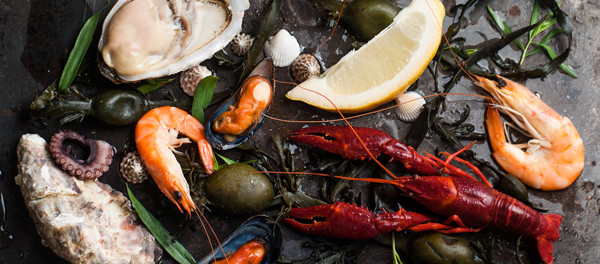Replace Your Multivitamin With These 5 Foods

A multivitamin may feel like a smart move: You get a load of micronutrients in a daily pill. But recent research published in the Annals of Internal Medicine found that multivitamins did nothing to stave off heart disease, cancer, or age-related cognitive decline. Even worse: Some findings suggest high doses of beta-carotene, vitamin A, and vitamin E may harm your health. Any way you look at it, the case against multivitamins is pretty strong.
So, how do you get all the vitamins, minerals, and essential nutrients you need? “Your body knows how to break down food and use it efficiently,” says Nikki Ostrower, a nutritionist at NAO Nutrition in New York City. “We can’t say the same for a synthetic pill. Really, we should all eat nutrient-rich foods while keeping supplements to a minimum.” Here are 5 nutrient-dense foods that will provide all you need from A to zinc.
1. Almonds
This tasty nut is a great place to start when replacing your multivitamin. A new study found that adding 1.5 ounces of almonds to adults’ and children’s daily diets raised levels of essential fatty acids, vitamin E, and magnesium to the daily-recommended level. Plus, eating the nut daily tended to crowd out empty calories from unhealthy snacks like chips.
2. Shellfish
Oysters, mussels, clams, and scallops offer the strongest concentrations of vitamins and minerals of any animal. They pack a wallop of nutrients plus they’re low calorie, low fat, and high in protein. Unlike your multivitamin pill, they’re also delicious. A handful of raw oysters offer 10 times the recommended daily allowance of B-12, 15 times the recommended zinc intake, 5 times the daily copper requirement, and 3 times our daily selenium needs. Iron? It’s got a full day’s requirement. A serving of mussels offers 3 days worth of manganese. Shellfish are high in omega-3s and low in omega-6s—an outstanding ratio for heart health and brain function. (Here’s how to get omega-3s if you’re a vegetarian.) They’re filled with the minerals copper, magnesium, and phosphorus. They also make an excellent source of vitamin D. Find a way to squeeze shellfish into your diet at least once a week and you’ll cover a good chunk of your nutrient needs.














Leave a comment
You must be logged in to post a comment.